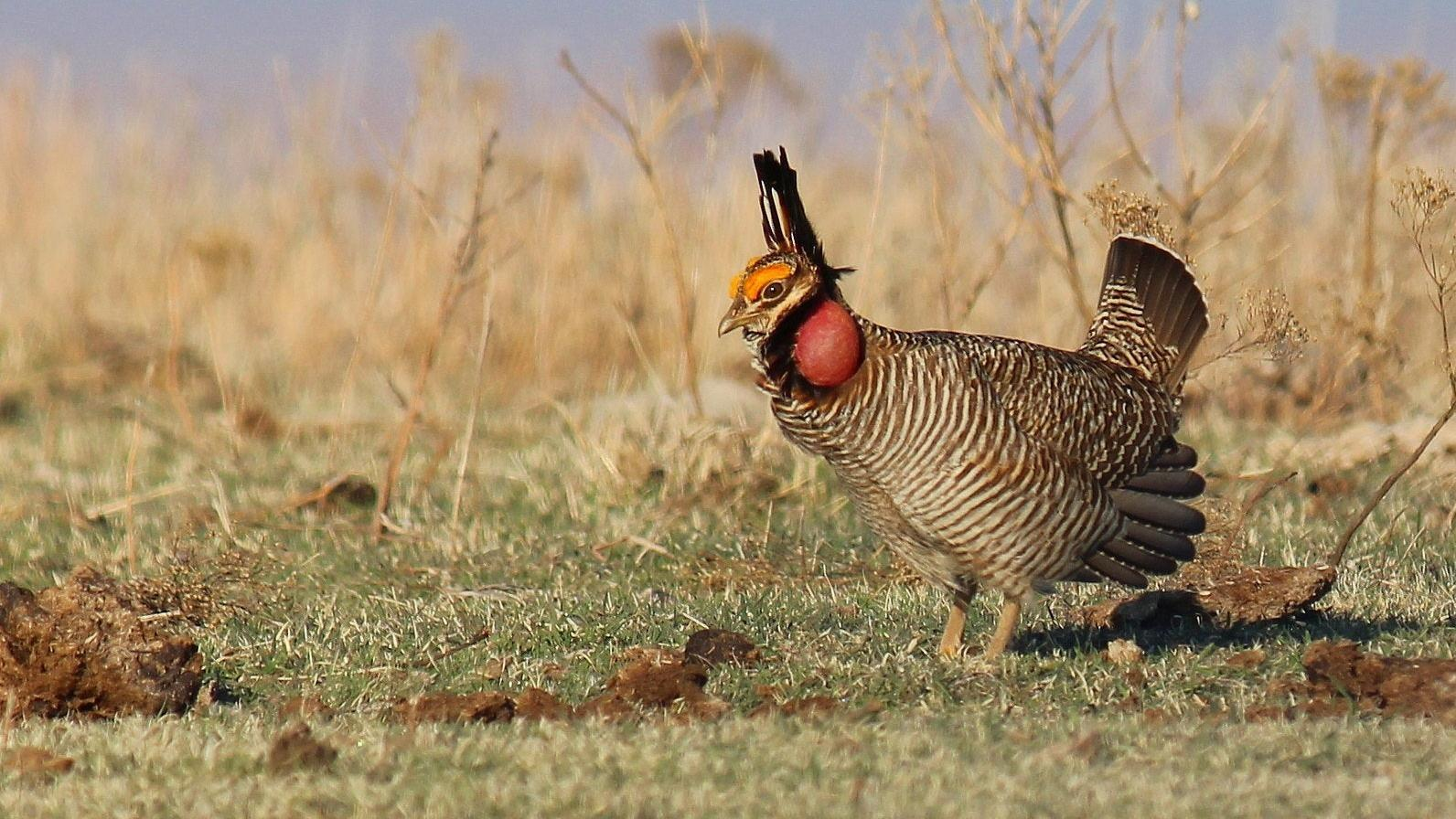Don't Eat This Weird-Looking Chicken
"Lesser prairie chicken" sounds like an insult. Actually, adding "lesser" to anything sounds a little insulting. "Lesser Lillian Stone" sounds like my imaginary identical twin, too boring and ugly for a name of her own. But the lesser prairie chicken isn't an insult—it's a funny-looking bird, and it's in trouble. Fortunately, U.S. wildlife managers are proposing federal protections for the little guy.
First, I want to clarify that the bird's name refers to its plumage, which is paler than its flashy cousin, the greater prairie chicken. But a pale chicken is still a chicken deserving of respect, which is why U.S. wildlife officials are working to protect the critter, saying its habitat is in danger of becoming more fragmented, the AP reports.
The AP explains that the chicken's habitat spans parts of New Mexico, Colorado, Texas, Oklahoma, and Kansas, including a portion of the oil-rich Permian Basin. Environmentalists consider the species severely threatened, largely because of oil and gas development as well as livestock grazing from area ranching and farming. The AP reports that the five-year average population across the bird's range, once estimated to number in the millions, now hovers around 27,000.
The Fish and Wildlife Service classified the bird as a threatened species in 2014, but removed it from the list two years after court rulings determined the agency failed to properly consider so-called voluntary conservation efforts. Now, federal officials are proposing to list the southern population in eastern New Mexico and the southern reaches of the Texas Panhandle as endangered. The birds in the northern part of the species' range would be officially listed as "threatened."
The public is divided on the issue. A group of U.S. senators sent a letter last week to federal officials urging them not to list the bird, with U.S. Senator Roger Marshall of Kansas suggesting that the proposed listing favors what the AP called "government overreach and heavy-handed regulation," potentially hindering the area's "oil and gas independence." Ranchers are also expressing concerns over the aforementioned "voluntary conservation efforts," asking that the government butt out and allow them to manage prairie chicken populations. In the meantime, please do not barbecue, fry, bake, roast, or spatchcock the lesser prairie chicken.
